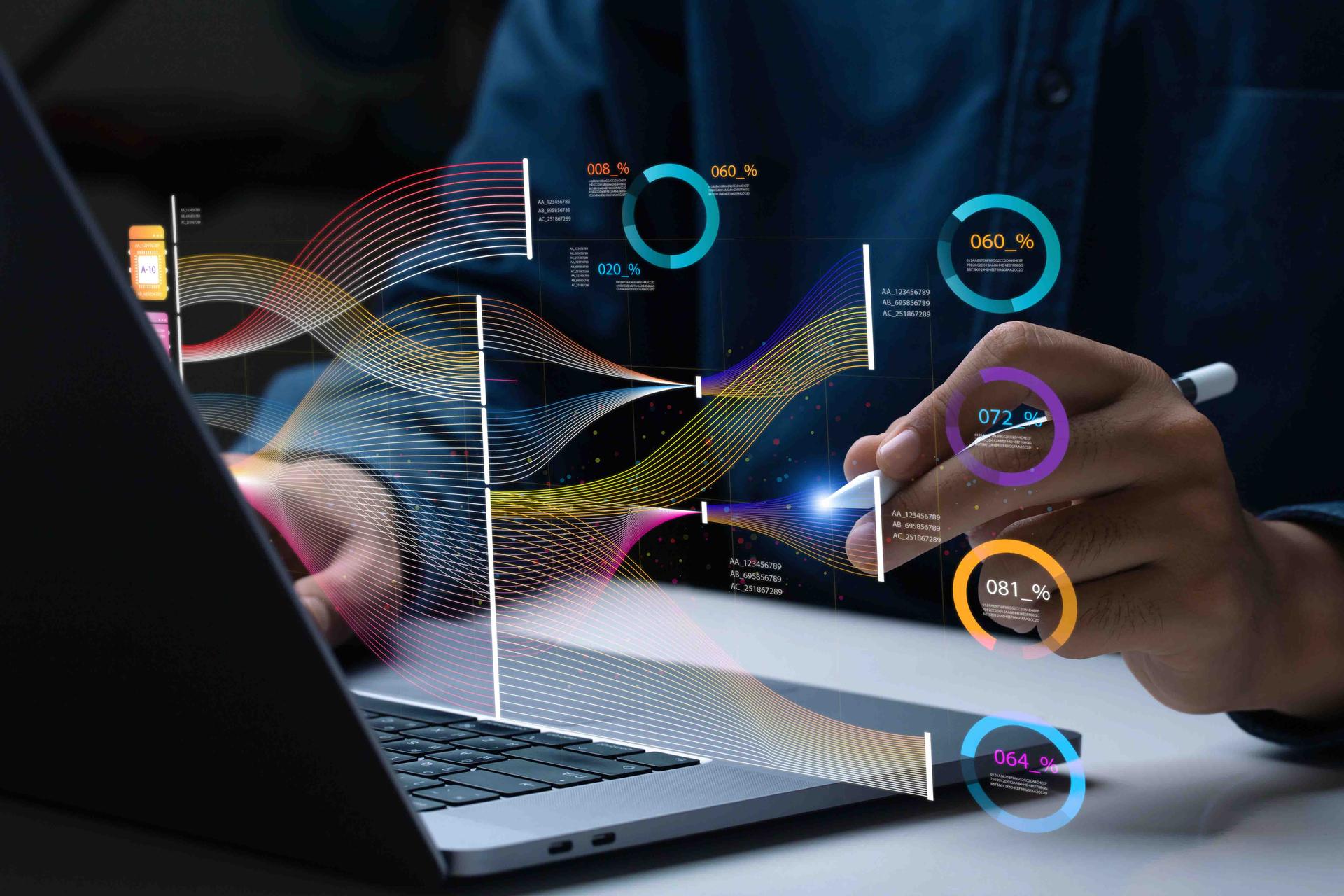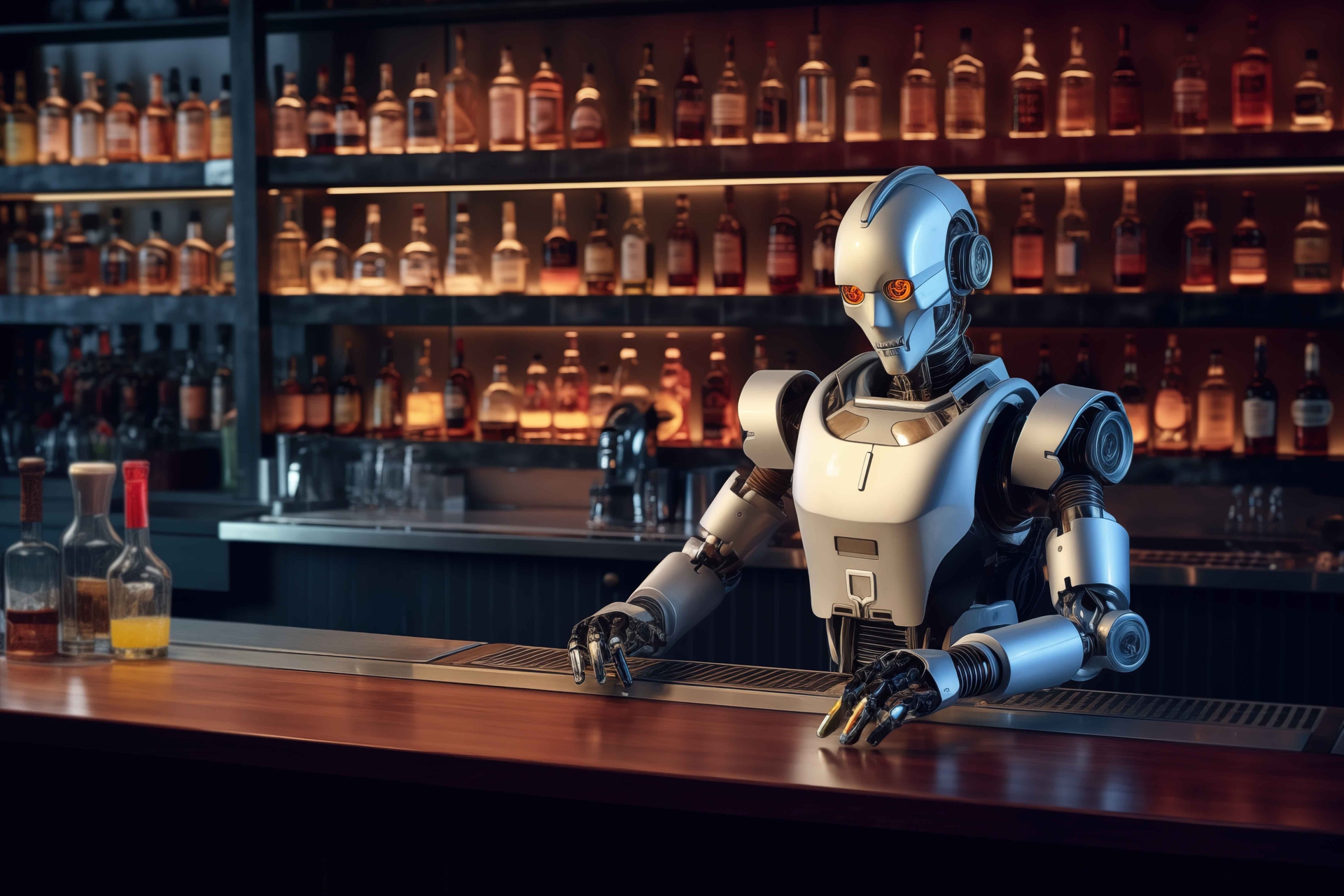
Order Up! How AI is Reshaping the Hospitality Industry
How can AI benefit my Restaurant?
- Chatbots for Customer Service: Integrate AI-powered chatbots on your website or social media platforms to handle customer inquiries, reservations, and menu-related questions. This allows for quick responses and improved customer engagement.
- Personalized Customer Experiences: Implement AI to analyse customer preferences, order history, and feedback. This data can be used to provide personalized recommendations, promotions, and loyalty programs, enhancing the overall dining experience. By offering loyalty cards, it will entice your customers dine with you more often and over competitors!
- Dynamic Menu Pricing: Use AI algorithms to adjust menu prices dynamically based on various factors such as demand, seasonality, and other market conditions. This can help maximize profitability. Pubs over the UK have already begun using this tool, when it reaches peak hours, the prices of beer increases. Be warned though, this could upset your customers!
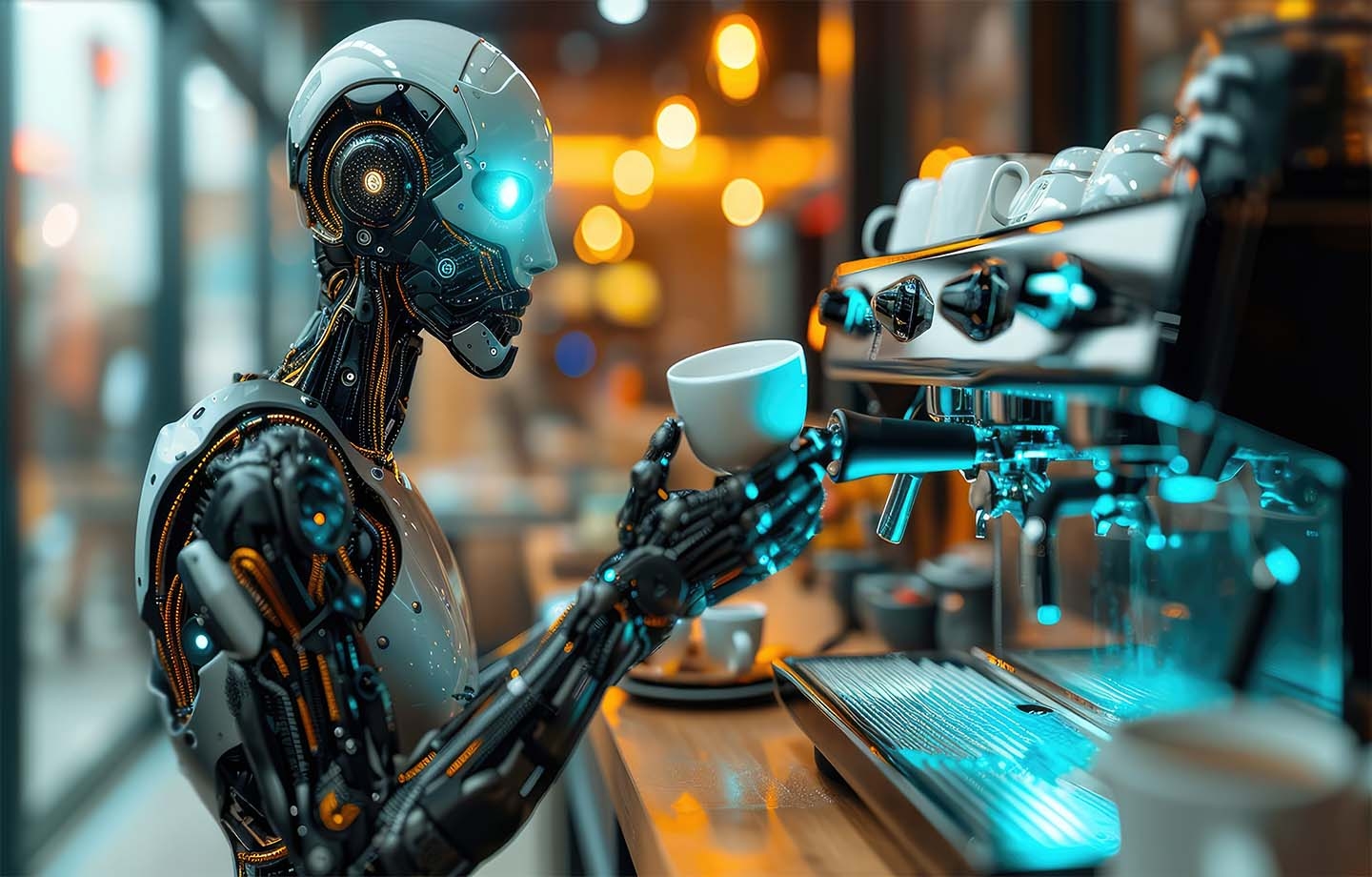
Industry Insights:
- Accenture estimated that AI could potentially double annual economic growth rates by 2035. This has been validated by a study by PwC estimating that AI could add $15.7 trillion to the global economy by 2030.
- In 2023, the global hospitality market reached nearly £4.0 trillion and was forecast to grow to £4.9 trillion in 2027 at a compound annual growth rate (CAGR) of 5.5%.
- When executives in the hospitality industry were surveyed on the main business priorities of hospitality companies in 2023, roughly half of respondents stated that “new technology to better serve customers and/or suppliers” was a business priority.
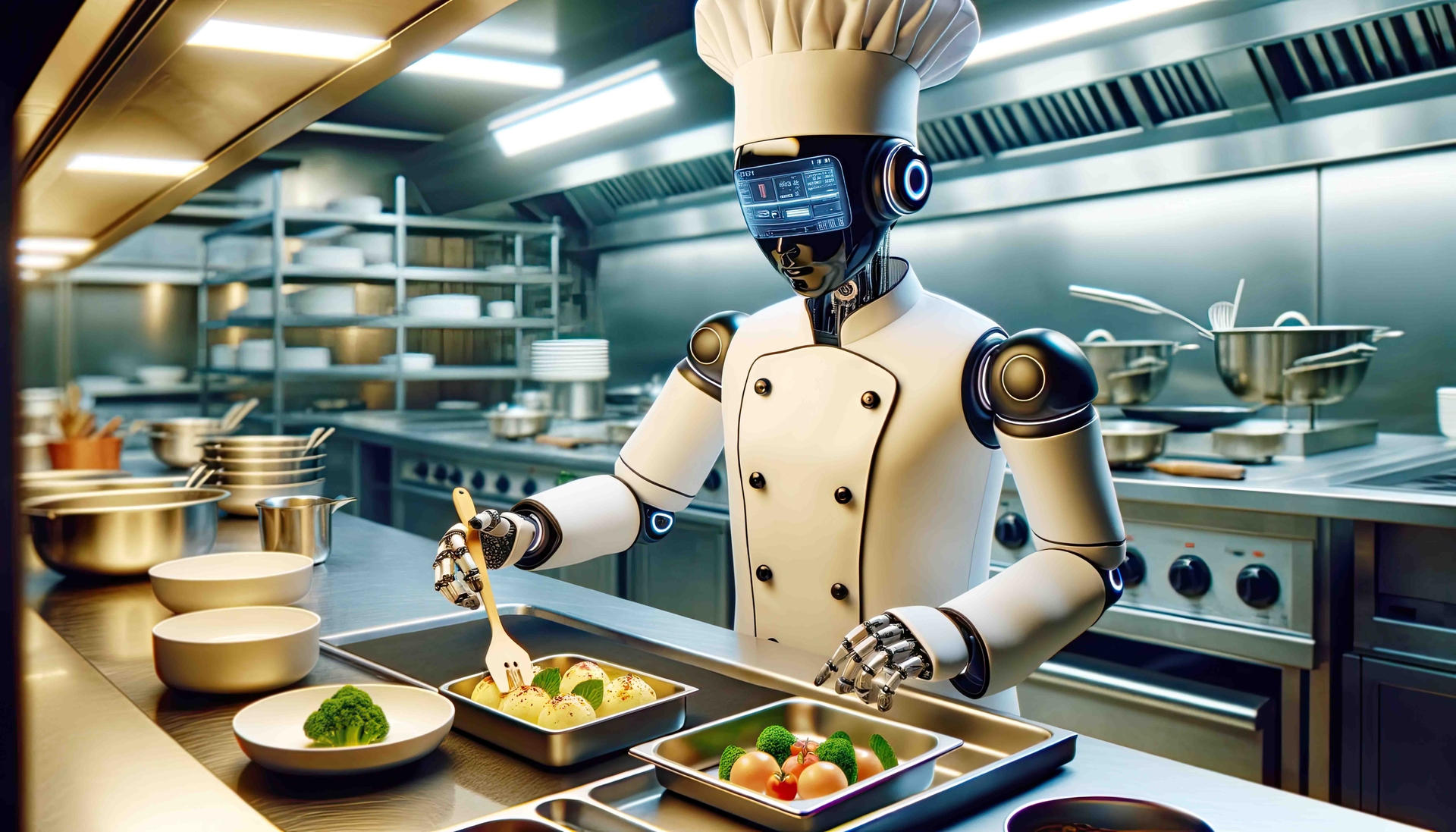
What Challenges does the Hospitality Industry face in adopting AI?
While the adoption of AI in the hospitality industry offers numerous benefits, there are several challenges that businesses may face during the implementation and integration process. Some of the key challenges include:
- Cost of Implementation: The upfront costs associated with implementing AI systems, including purchasing, and integrating new technologies, can be a significant barrier for some businesses, particularly smaller establishments with limited budgets.
- Staff Training and Resistance: Training existing staff to effectively use and manage AI systems is crucial. Resistance to change or a lack of familiarity with new technologies may pose challenges during the transition.
- Customer Acceptance and Understanding: Some customers may be hesitant or unfamiliar with AI-driven services. Ensuring that customers understand and accept AI applications in hospitality is crucial for a positive reception.
Despite the obstacles, successful integration of AI in the hospitality industry can lead to enhanced efficiency, improved customer experiences, and a competitive edge in the market.
How AI and Technology can solve Labour Shortages in the Hospitality Industry.
According to statistics by 2025, robots may replace humans in over a quarter of hospitality tasks, addressing labour shortages. Furthermore, robots are expected to deliver 1 billion items to guests in hospitality environments by 2034. While worries about robots replacing hospitality workers persist, technology addresses a crucial issue: labour shortages, a significant challenge in the hospitality industry today. Here is the good news, humans remain essential for quality assurance and oversight, the rise of tech in hospitality is creating a demand for professionals with tech experience and knowledge!
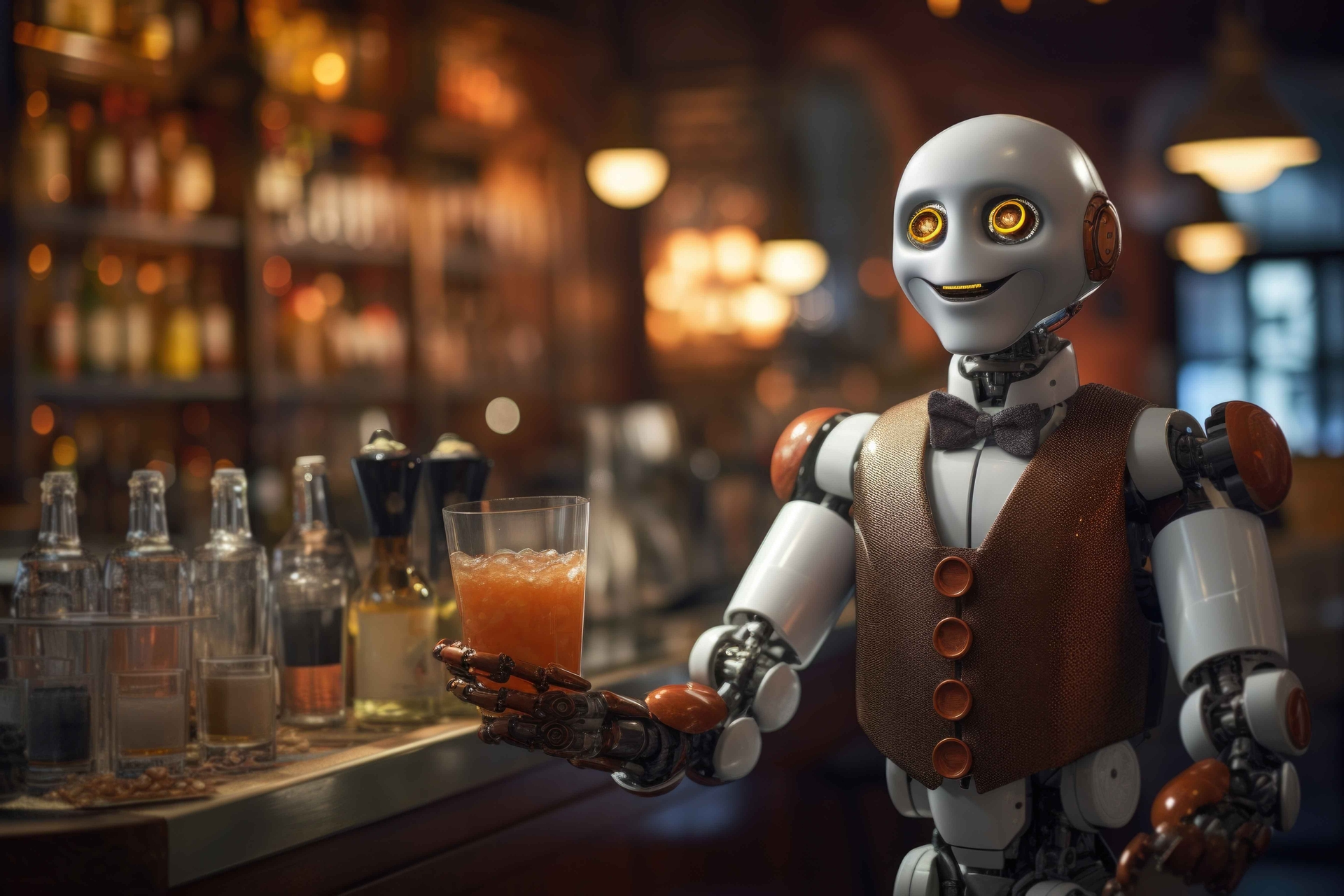
How AI is revolutionizing the Hotel Industry
In recent years, the advent of Ai has presented exciting opportunities for hotels to revolutionize their services in an evolving hospitality world. One of the key areas where AI has made significant strides in the hospitality industry is in guest experience management. Through AI, hotels can provide round-the-clock assistance to guests, addressing their queries, handling reservations and even suggesting personalized recommendations. An example of this is the integration of AI telephony that lowered the calls to the front desk staff and increased service level of answered calls. This can lead to higher customer satisfaction and allow employees to focus on more complex tasks.
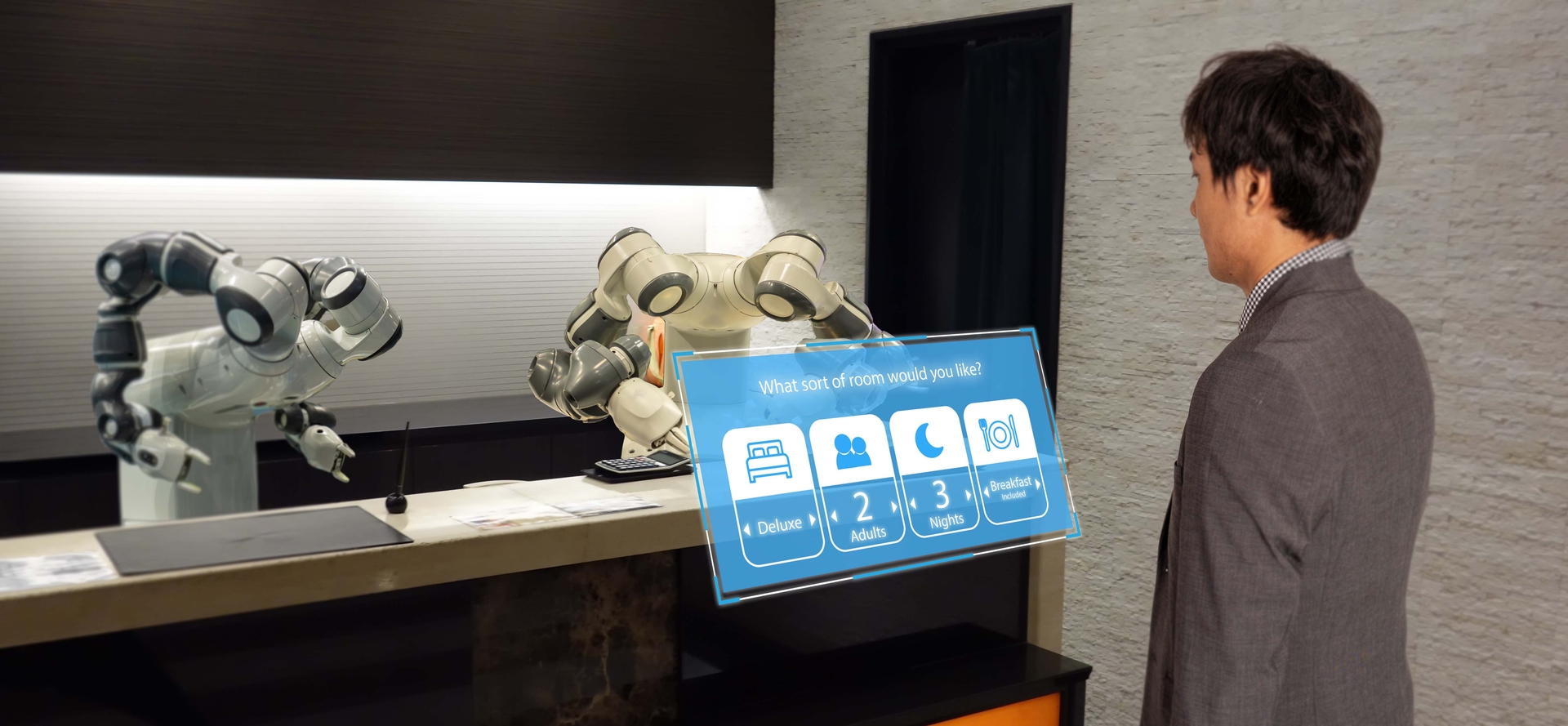
The Future of the Hospitality industry in the next decade
Predicting the exact future is challenging, but several trends suggest how AI may impact the hospitality industry over the next decade.
- Enhanced Guest Personalization: AI will continue to evolve in tailoring guest experiences. From personalized room settings to AI-curated dining suggestions, the industry will increasingly leverage AI to understand and anticipate individual preferences.
- Widespread Adoption of Chatbots and Virtual Assistants: Chatbots and virtual assistants will become commonplace for handling reservations, inquiries, and providing information. Their capabilities will expand, offering more sophisticated interactions and responses.
- AI-Infused Customer Service: AI-driven customer service will become more sophisticated, offering instant responses to queries, handling complaints, and providing real-time assistance. This will contribute to improved guest satisfaction and loyalty.
- Increased Use of Robotics: Robotics will play a more prominent role, especially in larger establishments. Robots may be deployed for tasks such as room service, cleaning, and concierge services, augmenting human staff and enhancing operational efficiency.
- AI in Revenue Management: AI algorithms will play a crucial role in revenue management, dynamically adjusting pricing strategies based on demand, seasonality, and market conditions to optimize profitability.
The successful integration of AI will require strategic planning, ongoing investment, and a commitment to delivering exceptional guest experiences.
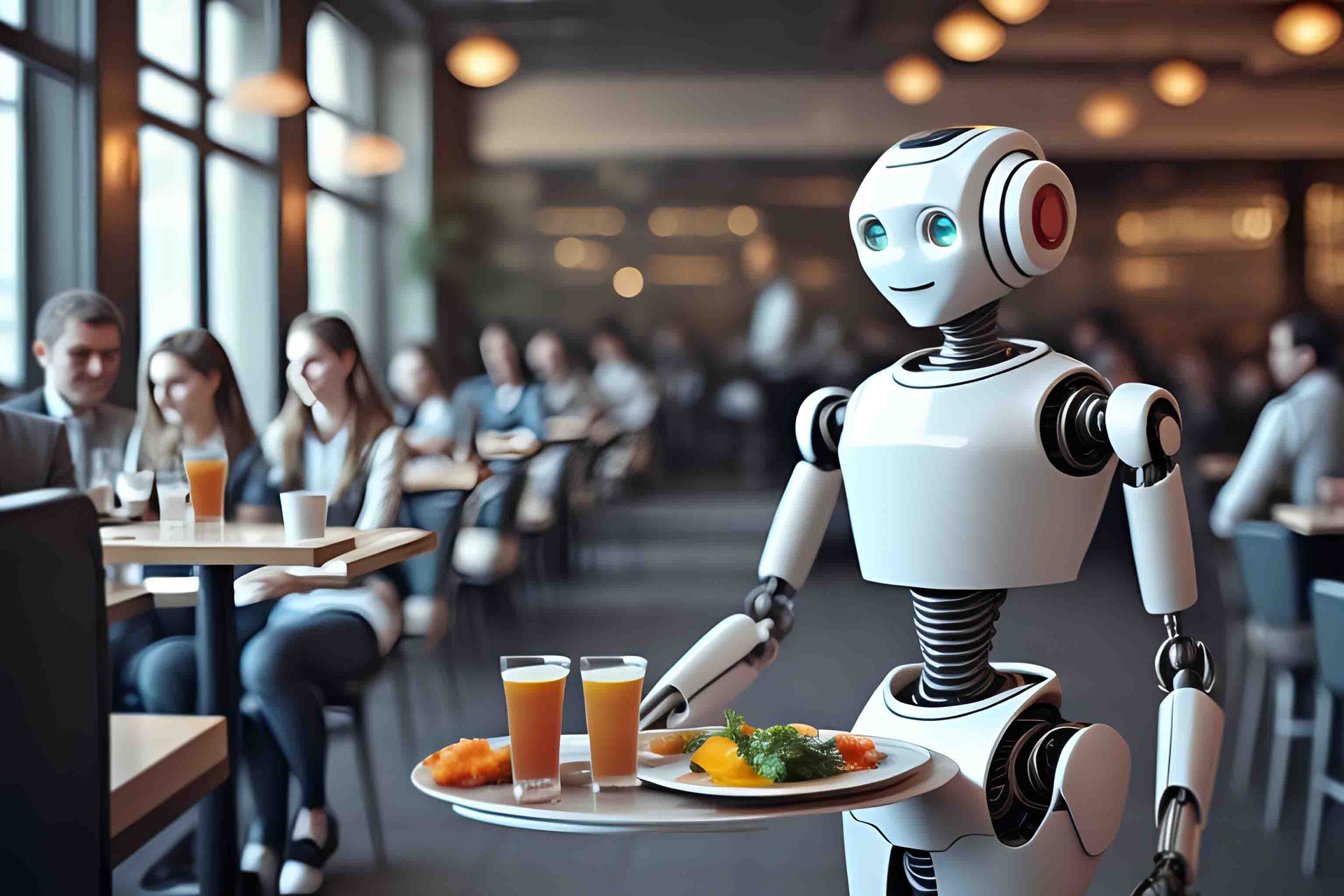
What are the best AI systems & Technologies for my hospitality business?
The choice of AI systems and technologies for your hospitality business depends on your specific needs, size, and goals.
- Predictive Analytics Platforms: Utilize predictive analytics to forecast demand, optimize pricing strategies, and streamline inventory management. Platforms like IBM Watson Analytics or Microsoft Azure Machine Learning can help in this regard.
- Personalisation Engines: Implement personalization engines to tailor guest experiences. Solutions like Salesforce Einstein or Adobe Sensei can analyse guest data to provide personalized recommendations and services.
- Robotic Assistance: Consider robotic systems for tasks like room service or cleaning. Companies like Savioke (with their Relay robot) or SoftBank Robotics' Pepper offer robotic solutions for hospitality applications.
- Guest Sentiment Analysis Tools: Implement sentiment analysis tools to monitor online reviews and social media sentiments. Platforms like Brandwatch or Socialbakers can help gauge guest satisfaction and manage reputation.
- Dynamic Pricing Solutions: Adopt dynamic pricing solutions to optimize pricing based on demand and market conditions. Companies like Duetto or Atomize offer platforms tailored for the hospitality industry.
When choosing AI systems, it's crucial to assess your specific requirements, budget constraints and the scalability of the technology. Additionally, consider solutions that offer user-friendly interfaces and provide support for staff training during implementation.
Inspire Your Business




